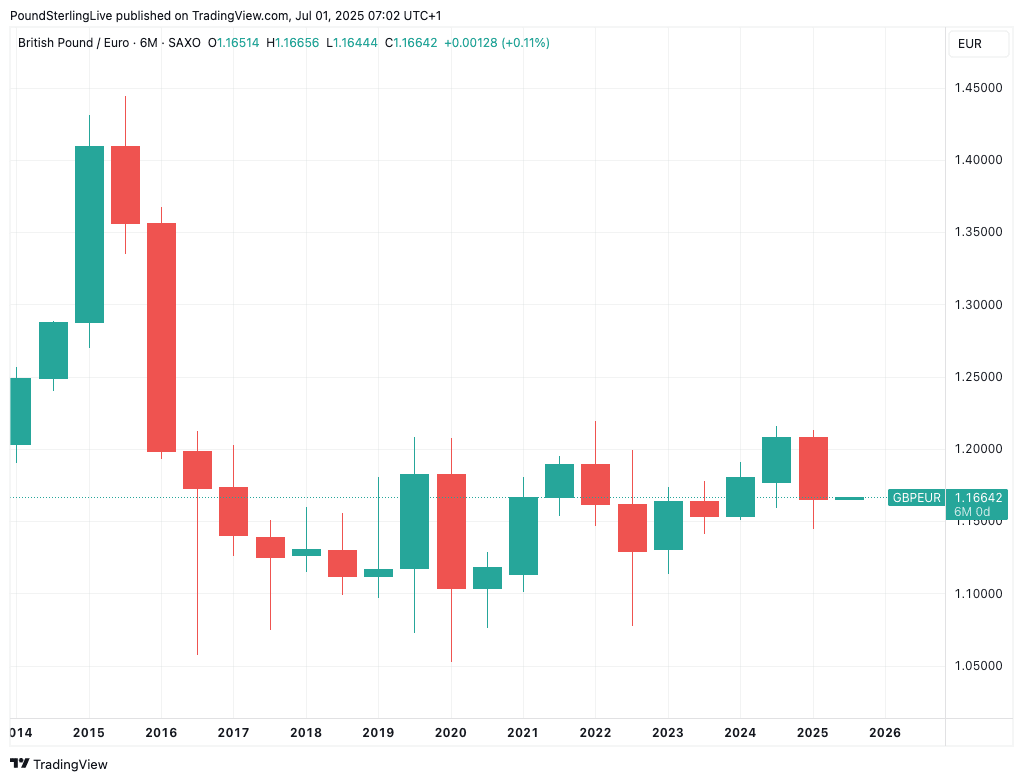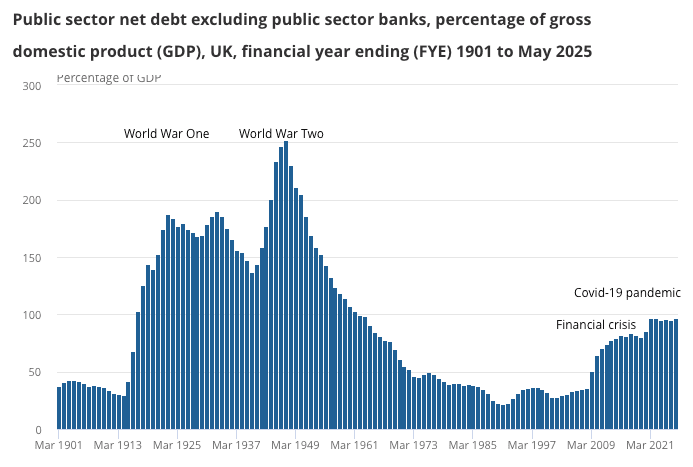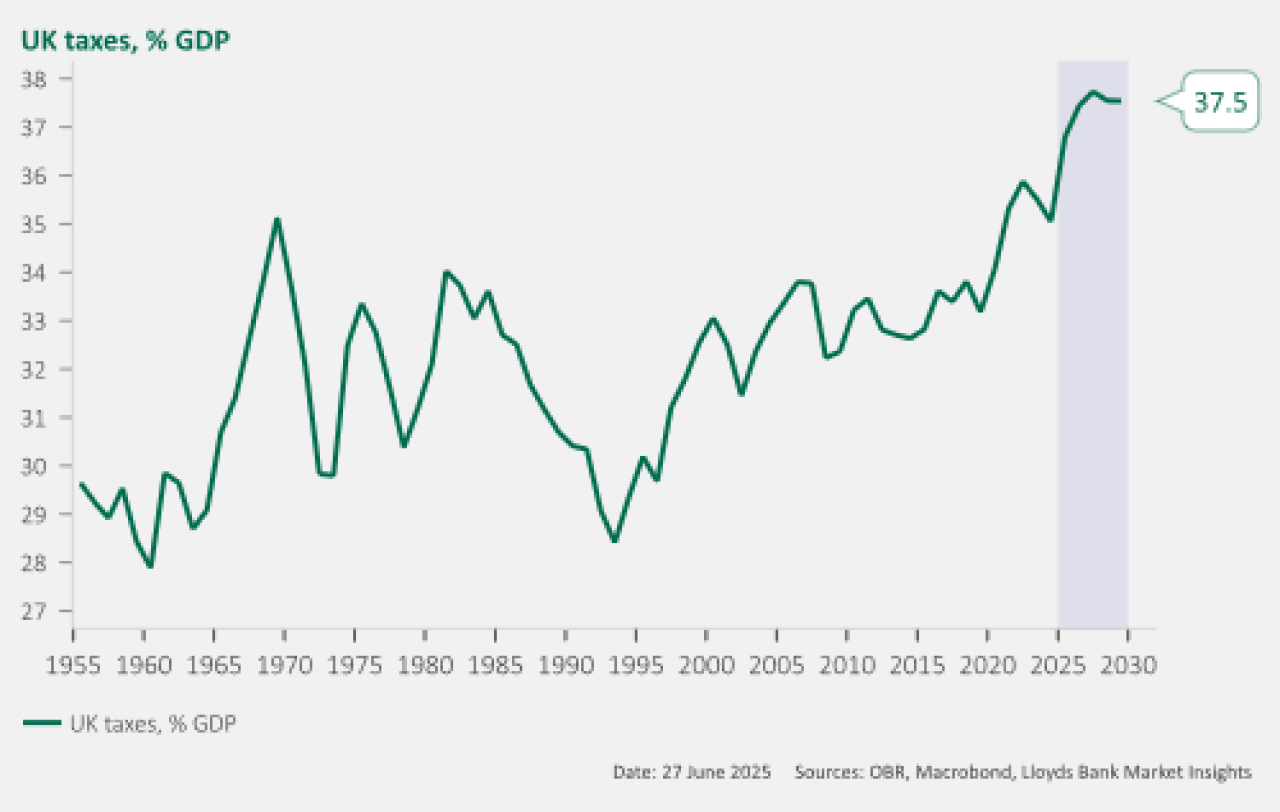
Picture by Simon Dawson / No 10 Downing Street
The British Pound will find that politics is becoming a headwind again.
The governing party doesn't have the mandate from its parliamentarians to bring spending under control.
This is the message markets are receiving as they parse headlines that warn Prime Minister Keir Starmer is on the cusp of a major rebellion from his own parliamentarians over his attempts to get a grip on the country's balooning welfare spending.
Labour Party MPs are unhappy about his plans to reform elements of the welfare system, and warn they could vote against Starmer's key legislation later today unless he makes fresh concessions.
The rebellion comes despite the significant retreat Starmer has already made to MPs. Debbie Abrahams, one of three senior Labour MPs who negotiated last week's partial u-turn on benefits cuts, said the final details of the Bill did not tally with what had been agreed.
The Bill's defeat would be a major blow to the government's authority and could lead to doubts about Chancellor Rachel Reeves' spending and tax plans, raising the odds of economy-hurting tax hikes in the Autumn.
Bigger picture, Starmer's weakening grip on his own party and inability to direct the fiscal journey will come as a shock to markets that had begun to price in a lengthy spell of settled UK politics.
Now, political uncertainty and the prospect of deteriorating economic fundamentals are squarely in the frame again.
For Pound exchange rates, this is never a good thing.
"The relative attractiveness of the pound will be diluted if the UK economy can not shake off its association with weak growth, struggling public finances, low business confidence and soft productivity growth," says Jane Foley, Senior FX Strategist at Rabobank.
Already, we see signs of suspicion in the market: the GBP/EUR exchange rate - which is considered the barometer of the UK economy - fell 3.5% in the first half of the year, weighed down by a flush of poor economic data releases in recent months.

Above: GBP/EUR still hasn't recovered half of its post-Brexit fall.
Pound Sterling meanwhile lost ground against half of its G10 peers in H1, suggesting that the two-year spell of outperformance has finally been snapped.
The UK's benefits bill is growing at a staggering pace: the government says over 1,000 people a day were signing on for Personal Independence Payments (PIP), the benefit that is paid to people unable to work due to issues ranging from ill health and disabilities to stress and anxiety.
PIP payments had been projected to almost double to £41BN by 2030, and the Office for Budget Responsibility says overall spending on disability and incapacity benefits is set to rise to £100BN from £65 billion last year.
"The welfare budget's spiralling, from £40bn pre-Covid to £100bn by 2030. We challenged Labour to cut spending, get people into work & rule out tax rises. Starmer has failed on all counts, and the welfare bill is still set to rise," says Kemi Badenoch, leader of the official UK opposition.

The open rebellion by ruling party MPs means the government risks losing control of spending and missing its fiscal rules that say it must start bringing down the debt spent on day-to-day spending by the end of the parliament.
At the very least, the government won't have the authority and mandate to pursue any meaningful attempts to bring down welfare spending or drive reforms in the current parliamentary cycle, which has at least another four years to run.
This means a potentially unbroken cycle of tax hikes from an already high starting point: taxes are already at their highest level since the Second World War.
Image courtesy of Lloyds Bank.
Starmer's waning authority and inability to get a grasp on UK debt dynamics will raise concerns on global financial markets about Britain's fiscal health and whether or not it will be able to meet its debt repayment obligations over the long term.
The global context is important as the UK will need to borrow more from international markets as other countries also ask to borrow more:
- President Donald Trump's One Big Beautiful Bill significantly expands America's debt requirements by nearly $4 trillion through 2034.
- Germany, Europe's largest economy, will ask to borrow substanitally more as it changes its own debt rules to spend on infrastructure and defence
- France is en route to potentially hit a debt-to-GDP ratio of 10%
But Europe and the U.S. have substantially bigger economies than the UK, with bigger central banks that can defend their currencies and test the market for longer.
The U.S. in particular can keep going far longer than the UK can.
This means it will be the UK that will be questioned by markets first, and meaningful spending cuts will become inevitable.
These reforms will be painful, requiring a big adjustment lower by the Pound.

